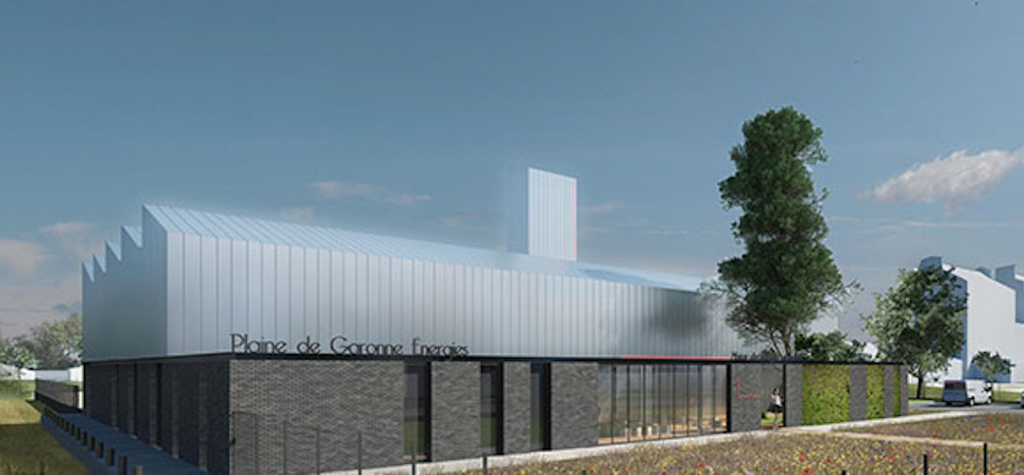Interview providing details on geothermal heating project in Bordeaux, France
In an interview, French company Engie provides details on its geothermal heating project in the city of Bordeaux in the southwest of France. The company plans to drill to a depth of 1,700 meters and alternatively 900 meters to develop a geothermal district heating system.
In a recent interview published in France, three questions are pointed to Christophe Raymond, director of the company Plaine de Garonne Énergies , a subsidiary of Engie in charge of the future urban heat network in Bordeaux in the Southwest of France. We previously reported on the project, which Engie won in January 2017.
There are already several district heating networks supplied by geothermal energy in the Bordeaux metropolis area. Why will the one now planned for Bordeaux by Engie be different?
“The future heat network powered by geothermal energy that will serve Brazza, Bastide Niel, Garonne-Eiffel and Quais ZACs , is unique in that it is the first time in New Aquitaine that we will be looking for water, at a depth of 1,700 meters. At this depth, the water temperature is at about 70 ° C. For the moment, we do not know if the quantity of water will be sufficient to supply the whole area, that’s why we are going to start exploratory geothermal drilling in the spring of 2019, which should be completed at the end of 2019 provided that all the actors project & local services unite in this virtuous sustainable & ecological adventure. The production well will be located on Cousteau’s Commandant Street and the reinjection well will be located on Charles Chaigneau Street in Brazza. The goal is to pass this water through heat exchangers to capture the heat via a production plant that will be adjacent to the production well. ”
What will happen if you don’t find sufficient water at 1,700 meter depth?
“If we do not find water at -1,700 meters, we will retreat to -900 meters, where we are certain to find water at about 50 ° C in the necessary quantity as it is already proven by the case in the Mériadeck district in Bordeaux or the Saige district in Pessac and the 106 air base in Mérignac which are already utilising geothermal energy from that depth. Nevertheless, if we discover that the Jurassic water table is sufficiently dense, the connection costs asked to subscribers will be lower than those induced by less hot water, this is the objective of this exploration. An ultra-competitive price on the bill! Even if we utilise the energy found at -900 meters, it will allow the consumer to decrease his bill, the price of this renewable energy will be independent of the evolution of the price of fossil fuels. And let’s not forget that VAT will only be 5.5% on the overall energy cost . ”
Who will be connected to this heat network? Who can be?
“This heating network is intended to supply new tertiary or residential complexes in emerging neighborhoods, as well as the collective heating of some existing housing buildings in the Benauge district, among others.
Feeding individual dwellings is technically impossible. For them, it would be necessary to entirely rebuild their existing heating system. To serve each home, it would be necessary to build a second network involving pharaonic works and each time install substations that transform the power of water that flows between 30 & 50 kilowatts to a power supported by an individual network, that is between 5 and 20 kilowatts. And unlike the installations of the heating network Plaine de Garonne Energies which are supported by public funds & Engie, all the individual installations are at the expense of the individual … Nevertheless, I insist on the fact that this local and renewable energy will allow save 19,000 tonnes of CO2 per year, equivalent to the emissions of 12,000 vehicles on the metropolis. Which will benefit the entire population …
Plaine de Garonne heat network energies: Why? How? Why?
There are currently nine heating networks in Bordeaux Métropole all supplied by renewable energy (wood energy, geothermal energy, heat recovered from the incineration of waste, etc.). After the Mériadeck district in Bordeaux, the Lormont Hauts de Garonne network or the Saige district in Pessac and the 106 air base in Mérignac, four urban projects under construction on the right bank of Bordeaux (Brazza, Bastide Niel, Garonne- Eiffel & the ZAC des quais) will also have an ecological heat network as of 2019 as part of a 30-year public service delegation. His name ? Plaine de Garonne Energies. The goal? 80% of energy needs will be covered by geothermal energy. Natural gas with biomethane, which is also a renewable energy, will be added during winter peaks.
Engie started developing the project in 2017 with initial studies, necessary permitting work and work planning. This and next year, the company will secure the sufficient exploration permits. Engie expects to commission its first phase in 2020 and further in 2023.
Source: Bastide Niel


















